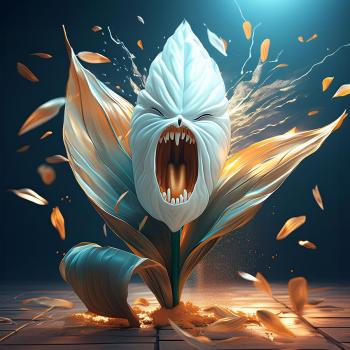[ This post is part of the Patheos Book Club discussion of FAIL ]
Fail: Finding Hope and Grace in the Midst of Ministry Failure.
J.R. Briggs
IVP Books, 2014
One of the characteristics of McDonaldization named in sociologist George Ritzer’s important book, The McDonaldization of Society, is the desire for control. As John Pattison and I have argued in the Slow Church book, the effects of McDonaldization have become deeply entrenched in churches, just as they have in the broader culture. One of the bitter fruits of the desire for control that I have observed in churches is a deep aversion to failure. Sure, nobody likes to fail, but some churches get so paranoid of failure that even the tiniest perception of risk is enough to nix a potential initiative.
Part of slowing down as churches is accepting the reality that we will fail and that a better course of action than trying to avoid failure at all costs is to learn to forgive and be forgiven and to pick ourselves up after failure. In this vein, J.R. Briggs has written a wonderful, liberating book entitled Fail: Finding Hope and Grace in the Midst of Ministry Failure. Aimed at pastors and other church leaders, this work will be a comfort both to those who have failed and to those who are bound up by the fear of failing. Briggs is also the creator and curator of the Epic Fail conference events for pastors and the experience of coordinating this event has provided a rich body of stories to draw upon as he reflects on how we should handle our inevitable failures. The most compelling stories, however, are Brigg’s own. For instance, how as a twenty-something, he was apparently being groomed to be successor to the senior pastor of a three-thousand member megachurch, but yet the pastor never conveyed this plan to the elders or others in the church. After that pastor left abruptly, Briggs found out that other leaders in that church were not aware of the pastor’s intentions and in fact, many of them adamantly opposed this plan. Still reeling from this harsh realization, Briggs eventually felt called to plant a new church, only to be met again with fierce resistance by the church’s leadership. Eventually, Briggs severed his ties with the church – which did not go well at all – and followed the call to plant a church without the support of another congregation or denomination. He writes:
On the surface my story may not seem like ministry failure in the traditional sense of the word. It is not laced with scandalous headlines or sexual impropriety. It did not involve an arrest or a gruesome addiction. Other pastors certainly have had it worse than I. And yet everything I felt was consistent with what failure traditionally feels like: betrayal, hurt, hopelessness, grief, loss, disillusionment, bitterness, doubt, anger, the need for survival and the gripping anxiety of wondering how we would make it. As a people pleaser I had failed to live up to the expectations others had placed on me. As a husband and as a man I had failed to live up to cultural expectations of being a man: the ability to get my wife pregnant. I had lost trust in leadership, in church and in people. And truthfully, I had failed to live up to the expectations I had placed on myself. (20).
Naming the failure-rejection-shame trajectory that he found himself on, Briggs suggests that there might be a different sort of response than our instincts to either flee or fight. Freedom is what we find as we mature to handle failure with grace. Briggs writes:
This downward mobility of a life hidden with and free in Christ leads us in a direction and on a trajectory counter to the esteemed goals of our culture. We may fail, but it does not define us. We may fail, but we are loved anyway. We may fail, but we are accepted by God, who has taken our failures upon himself. We may fail, but we are invited to be an honored child of the King. (27)
These are words that are sorely needed to be heard in our churches. Briggs’s message is simple, and yet it may be difficult for many to hear, as it cuts across the grain of North American culture, which in Briggs’s words, has made a golden calf of success. Even though this book was written for pastors (and most of its stories are drawn from pastoral work), this is a book for all Christians. If we are going to learn to slow down, we will need to learn the art of gracefully navigating failure, and on this journey we have no better guide than J.R. Briggs. I encourage you to read this book and to take its words to heart.

















